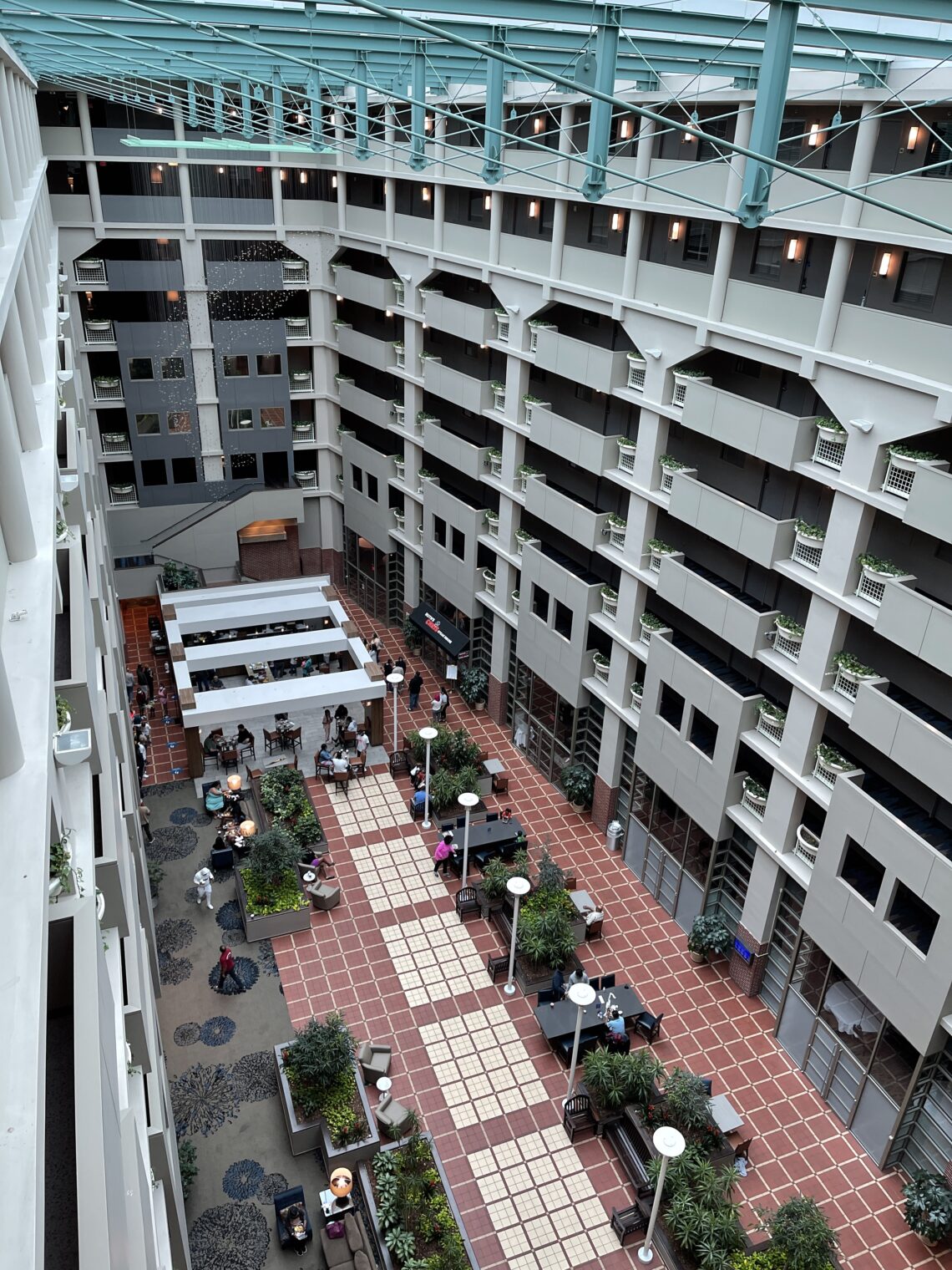Our April trip to Florida and back entailed a bunch of stays at Hilton-family hotels with crummy Internet. The WiFi networks at Embassy Suites and DoubleTrees seem to be throttled to about 5 Mbps when they work, but coverage was spotty. Working remotely would have been impossible in most of our Embassy Suites room in Atlanta (at right), for example.
When we looked up to pray to the WiFi gods, however, we inevitably saw smoke alarms in the room. These were hard-wired back to a central station. If each device needs to be connected to power and signal, then mounted to the ceiling, why not have that device also provide WiFi service? It couldn’t add more than $20 to the cost of a smoke alarm to have it serve as a wireless access point, right? Maybe the wires back to the central station would need to be beefed up.
Something vaguely along these lines exists for the home: “First Alert Has Its Own Wi-Fi Mesh Router That Hijacks Every Connected Device With Smoke Alarm Warnings” (Gizmodo, January 2018).
Every new hotel by law must have a smoke alarm in each room, right? And every new hotel for commercial reasons must have WiFi coverage. Why isn’t there an off-the-shelf solution combining these two requirements?

Different kind of wiring. Most likely the wiring required for smoke/fire alarms in commercial buildings is specified by the building codes to be quite incompatible with Cat 5 or signaling over packet-switched networks.
When you see a blatant idiocy persisting it’s usually a good idea to check govt regulations first.
In my experience, WiFi connectivity itself has never been a problem. However, the shared bandwidth presumably after the router was rather limited for obvious reasons.
I usually use my iPhone as a hotspot whenever I travel. Rarely, if ever a hotel WiFi connection was better than the iPhone hotspot..
Your idea seems useful, obvious, and trivial enough that it takes no technical knowledge to recognize it as such. That means there must be a gazillion “inventions” filed at the uspto around every possible combination of claims related to it.
I tend to stay at boutique hotels when I travel and WiFi bandwidth has never been a problem, including full day or night of bandwidth-intensive remote work
I think it’s a good idea particularly on new construction. So what if building codes have to be adjusted? We do that all the time because of technological change and people get paid to do it.
Here’s a WiFi smoke detector. Flip it on its head a little and it becomes a WiFi hotspot AND a smoke detector. It baffles me that this hasn’t been done.
https://www.x-sense.com/products/x-sense-xs01-wt-wi-fi-smoke-alarm